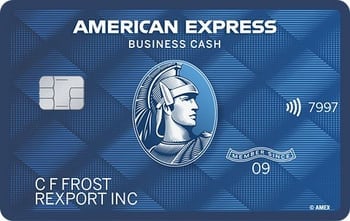Who Can Apply for a Small-Business Credit Card?
You don't need to be incorporated or have a formal business structure to qualify for a small-business card. But your personal credit will be important.

Many, or all, of the products featured on this page are from our advertising partners who compensate us when you take certain actions on our website or click to take an action on their website. However, this does not influence our evaluations. Our opinions are our own. Here is a list of our partners and here's how we make money.
A small-business credit card can help entrepreneurs or people with side hustles build business credit and keep their work and personal finances separate. Many come with seriously sweet benefits, too, such as higher sign-up bonuses and bonus rewards in common business spending categories like travel and internet access.
But many people who could benefit from a small-business credit card hesitate to apply because they're unsure whether they would qualify. What counts as a “business” for the purposes of getting a small-business credit card? Are they only for incorporated businesses with a certain number of employees or minimum annual revenue, or can you qualify for one if you earn extra income walking dogs in your spare time?
You don’t need a formal business structure
You don’t need to operate an LLC or a corporation to count as a “business” for credit card application purposes. Sole proprietors can also apply for a small-business credit card. That means anyone from the owner of a company to a freelancer working from home can be considered business operators. Dog-walking side-hustlers, that includes you, too.
You don’t need existing business credit history
If your business hasn’t existed very long and doesn’t have its own credit history, qualifying for a card is still possible, especially if you have a good personal credit. That’s because small-business cards generally require you to accept personal liability for any charges and debt on the card, even if your business goes under. This makes a business card riskier for you, but less so for a credit card issuer.
However, there’s an upside to taking on the risk: Using the card responsibly will help you build a business credit history. This could make it easier to qualify for more business credit or a small-business loan in the future.
Information needed for your application
Credit card issuers consider multiple factors, including your spending and repayment habits, existing debts, income and personal credit score. When applying for a small-business credit card, have the following information available:
Business information: This includes your business name and contact information, the company structure, the industry you’re in, your role in the business, the number of years the business has been operating, the number of employees (including yourself), and annual revenue or sales. Some cards, such as Capital One and American Express business cards, ask for an estimate of your monthly business spending.
A federal Tax Identification Number: The IRS requires an Employer Identification Number, or EIN, when your company meets certain criteria, including if you have employees or if your business operates as a corporation or partnership. You can apply for an EIN online. Sole proprietors and LLCs without employees don’t need EINs — simply use your Social Security number as your tax ID number.
Personal information: This includes your name and home contact information, birth date, annual income, Social Security number and monthly rent or mortgage payment. You may be asked for some additional details — Chase, for example, asks for your mother’s maiden name when you apply to their Ink Business cards.
Matt Vischulis, managing vice president of Capital One's small-business cards division, advises applicants to prepare for a slightly longer application process if their business has multiple owners.
“If your company has beneficial owners (one or more additional, direct business owners with at least a 25% ownership in the company), small-business credit card providers must collect their identifying information such as name, date of birth, address, etc.,” he says. “Some business owners don't expect this step, and it's always helpful to have on hand before beginning the application process.”
Article sources
NerdWallet writers are subject matter authorities who use primary,
trustworthy sources to inform their work, including peer-reviewed
studies, government websites, academic research and interviews with
industry experts. All content is fact-checked for accuracy, timeliness
and relevance. You can learn more about NerdWallet's high
standards for journalism by reading our
editorial guidelines.








